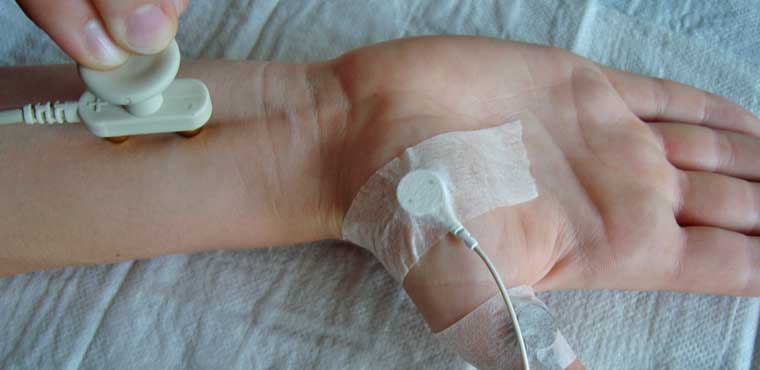Are you experiencing strange sensations such as tingling, numbness, burning, or otherwise unexplained pain? Are you experiencing weakness in your arms or legs?
These symptoms might be assessed with electrodiagnostic studies (EMG/NCS).
Electrodiagnostic Studies Consist of 2 Parts:
Nerve conduction studies (NCS), and electromyography (EMG). Nerve conduction studies are small electric shocks used to stimulate nerves, which can then be measured to assess function of the nerves. Electromyography comprises small needles with microscopic electrodes, used to detect normal and abnormal muscle electrical signals, which help determine how your nerves are “talking” to the muscles.
Together, the study can provide comprehensive information about the function of nerves, locate the problem within the nervous system, and also explain how severe the problem is.

Common problems that can be detected by electrodiagnostic evaluation include:
“Pinched nerves”, carpal tunnel syndrome, radiculopathy, peripheral neuropathy, muscle diseases such as myopathy, motor neuron diseases such as amyotrophic lateral sclerosis, myasthenia gravis, and other diseases of the nervous or musculoskeletal system that cannot otherwise be explained.
Here at Specialty Spine Care (an affiliate of Northeast Rehab), our studies are performed by Bruce Zhang, MD, who is a fellowship trained, experienced electro-diagnostician, and a diplomate of the American Board of Electrodiagnostic Medicine.
- Electrodiagnostic Testing [OrthoInfo – AAOS]: https://pubmed.ncbi.nlm.nih.gov/11683446/
- Electrodiagnostic Evaluation of Peripheral Neuropathy [StatPearls – NCBI Bookshelf]: National Institutes of Health (.gov)
- [image] Nerve conduction studies (NCS) test. Source: Pexels (https://www.pexels.com/) /Image Title: Nerve Conduction Velocity Test (confirmed by visually inspecting the image on Pexels) Creator: Victoria_Art (according to Pexels)

